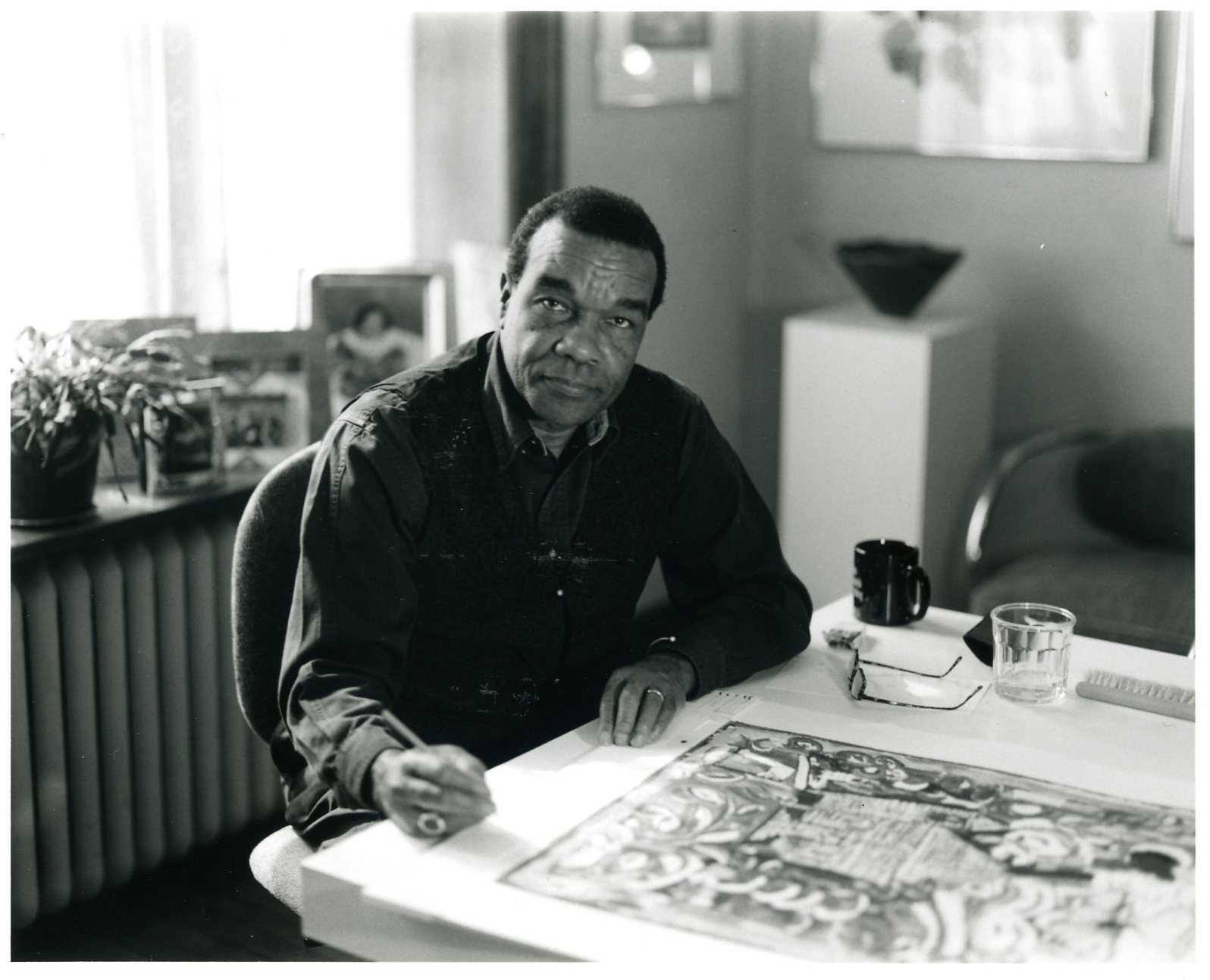MS01.01.03.B02.F10.036
Facsimile
Transcription
[crossed out: 27] 32
given was that he was a [crossed out: Bl] black man and it was not a customary act to receive people of color at such functions. Thus began a conflict in the artist's life which seemed to have been an unfounded punishment for the superb talent he exhibited at the Centennial Exhibition. He has been singled out to win an award based on merit of [crossed out: the] his work which took into consideration the aesthetic value of his painting. Perhaps, the jury which singled Bannister out as a winner of the most coveted award in America at that time did not know that he was a [crossed out: B] black man.
Bannister, though fully aware of the risks taken of being an artist in a racist society, more specifically, one which was still wrestling with the lingering evils of slavery in which it had been engaged since its founding, had not expected to be treated in such an inhumane manner since his talent was what was supposedly being judged. [crossed out: But what is clear abouth this episode in American] [crossed out: This denial of Bannister's right as an artist] One is therfore tempted to work the questions; Did this episode in American cultrual history [crossed out: is that is] signal [crossed out: led] the approval of a segregationist attitude in American art among some professionals, when Black artists' works [crossed out: are] were at stake, which has lasted into our own times? Was "Black Art" in America actually born of the seeds of prejudice and racial segregation from the very beginning? William J. Simmons, writing a biographical sketch of the artist in MEN OF MARK, states that Bannister wanted to disprove a statement which was published in 1867 in the NEW YORK HERALD which noted "... that while the Negro may harbor an appreciation of art, he is unable to produce it". Obviously, this Herald writer had never seen the genius of Robert S. Duncanson's artistry which had won him fame in the major European capitals when the article was written.
However, one would assume that one-hundered years hence, such misconceptions and generalizations would no longer be written or would be limited to the unpopular rhetoric of a small band of uneducated champions of racist causes. Unfortunately, this not the case.
Notes and Questions
Nobody has written a note for this page yet
Please sign in to write a note for this page

